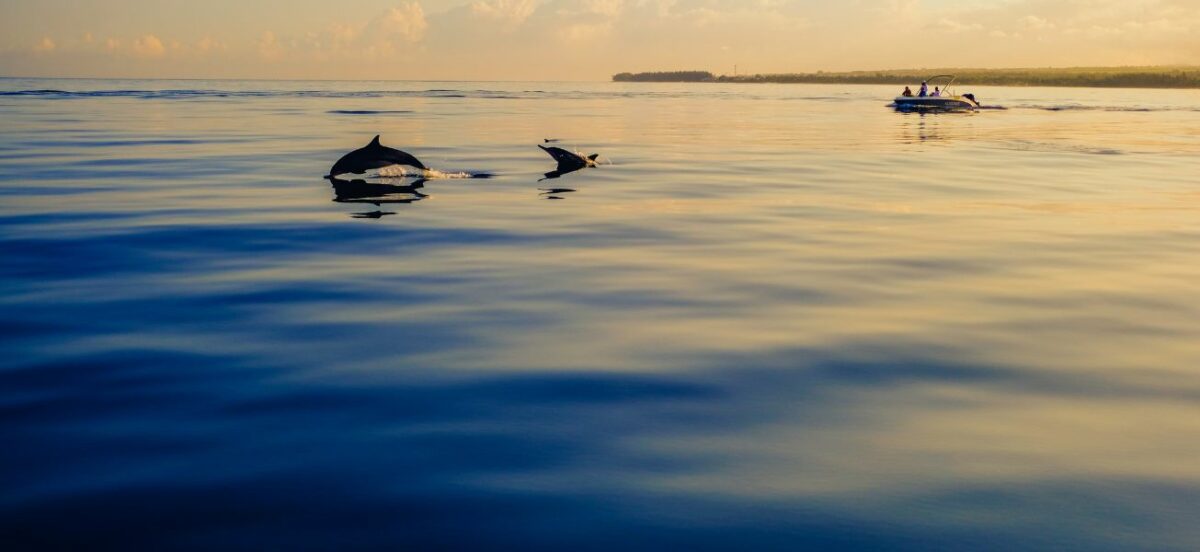As a marine conservation organisation, Action for Dolphins is always striving to educate the public about the importance of protecting our ocean’s inhabitants.
One lesser known issue is the impact feeding wild dolphins can have on their welfare and survival.
Feeding wild dolphins might seem like a harmless, even positive, interaction, but it can lead to a range of issues and can also have severe consequences for the animals and the people involved.
When dolphins associate humans with food, they are more likely to approach boats, putting themselves at risk of boat strikes or entanglement in fishing gear. Additionally, feeding dolphins food that is not part of their natural diet can lead to health issues and disrupt their normal feeding behaviours and pod dynamics [1].
Feeding wild dolphins is illegal in Australia. However, four tourism sites, including one at Tin Can Bay, have exemptions to run regulated feeding programs with wild dolphins. It is important for the public to understand that this exception does not apply to other locations or situations where feeding wild dolphins is prohibited.
The fact that the wild dolphin hand feeding program at Tin Can Bay continues could explain why some people do not know that feeding wild dolphins is generally illegal or harmful. Anyone who has been to Tin Can Bay could be forgiven for assuming that feeding wild dolphins is acceptable or even encouraged in Queensland.
A recent incident in Queensland illustrates this confusion. In April 2023, a fisherman was fined $431 for hand-feeding a wild dolphin off the coast of Tin Can Bay. The incident came to light when a video of the feeding was shared online, prompting Queensland Parks and Wildlife to launch an investigation [2]. The fisherman was not aware that feeding wild dolphins was illegal when he did so.
This fisherman is not alone. Senior wildlife officer Tina Ball told The Age that Queensland Parks and Wildlife rangers were on the ground at Tin Can Bay and the nearby coast of Rainbow beach, due to an increase in illegal interactions with dolphins in the area.
To respect dolphins and avoid public confusion, we believe that regulated feeding programs, like the one at Tin Can Bay, should be discontinued.
In the meantime, please maintain a safe distance from wild dolphins when out on the water; skippers must not approach within 150 metres in front of or behind a pod, and 50 metres if approaching from the sides [3].
Together, we can work towards a more responsible and informed approach to interacting with wild dolphins, ensuring their safety and the continued health of our oceans.
